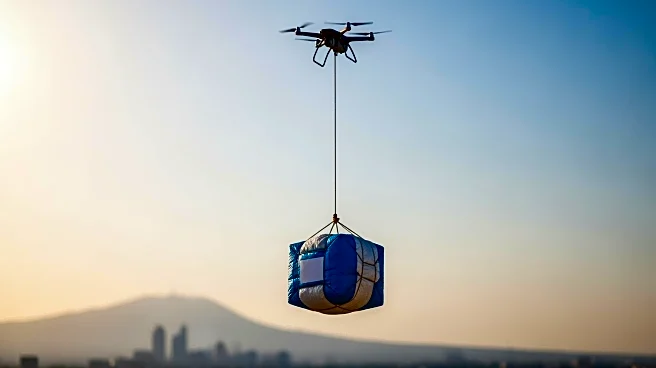What's Happening?
Israel has decided to keep the Rafah border crossing closed and reduce the amount of aid allowed into Gaza, citing delays in the handover of bodies of hostages by Hamas. The ceasefire, brokered by the U.S.,
was largely holding, although Hamas accused Israel of violating the agreement with attacks in Gaza. Israel had initially pledged to allow 600 truckloads of humanitarian aid per day, but has now reduced this to 300 trucks, while continuing to restrict fuel and gas shipments. The Israeli military stated that these restrictions are due to Hamas's failure to comply with the agreement regarding the release of hostages' bodies.
Why It's Important?
The reduction in aid deliveries to Gaza has significant humanitarian implications, as the territory relies heavily on external assistance for food, medicine, and other essential supplies. The decision to limit aid could exacerbate the already dire conditions in Gaza, potentially leading to increased famine and suffering among the civilian population. The ongoing conflict and restrictions also highlight the fragile nature of the ceasefire and the challenges in achieving lasting peace in the region. Both Israel and Hamas face international pressure to adhere to the terms of the ceasefire and facilitate humanitarian aid.
What's Next?
The situation remains tense as both sides navigate the terms of the ceasefire. The U.N. has called on Hamas to expedite the return of hostages' bodies and urged Israel to allow more humanitarian aid into Gaza. The international community is likely to continue monitoring the situation closely, with potential diplomatic interventions to ensure compliance with the ceasefire agreement. The humanitarian crisis in Gaza may prompt further discussions on opening additional border crossings to facilitate aid delivery.
Beyond the Headlines
The ongoing conflict in Gaza raises ethical and legal questions about the treatment of hostages and detainees, as well as the responsibilities of warring parties to protect civilian lives. The restrictions on aid deliveries also underscore the complex geopolitical dynamics in the region, where humanitarian needs are often entangled with political and military objectives. Long-term peace efforts may require addressing these underlying issues and fostering dialogue between conflicting parties.










